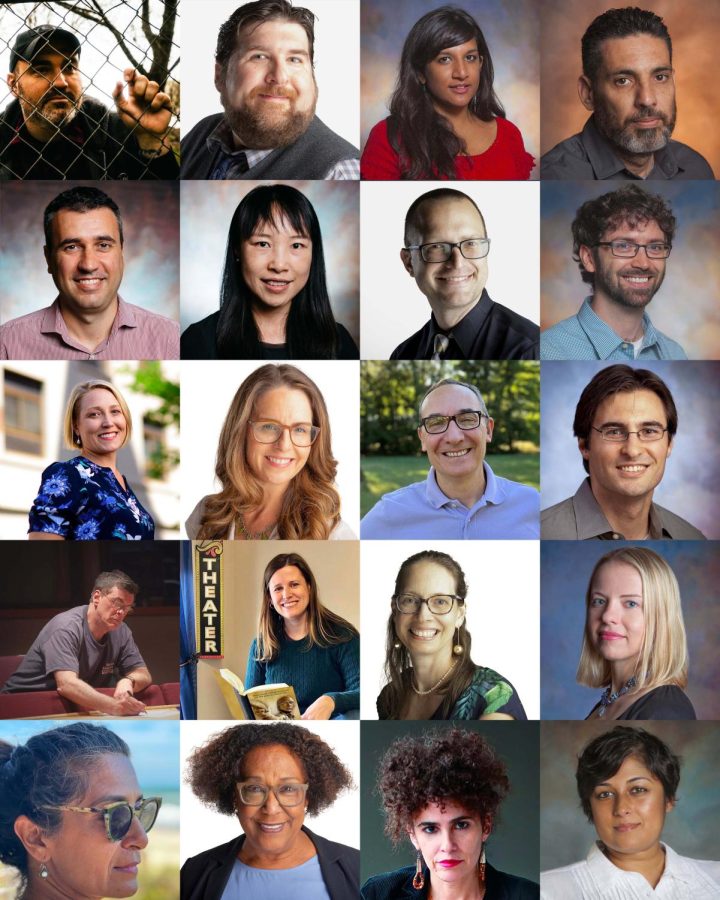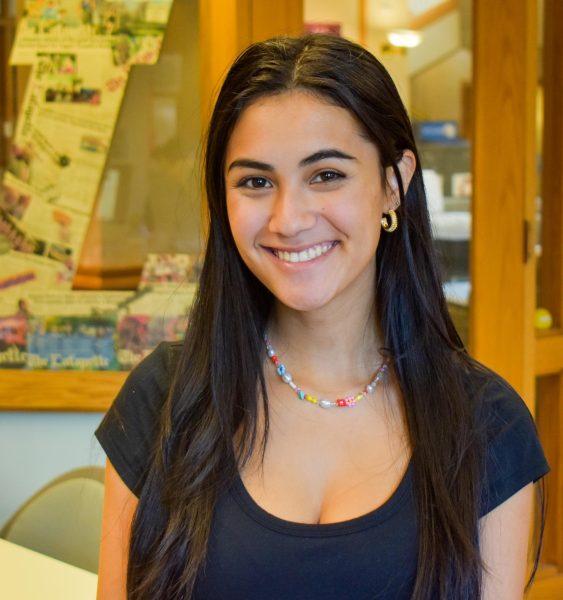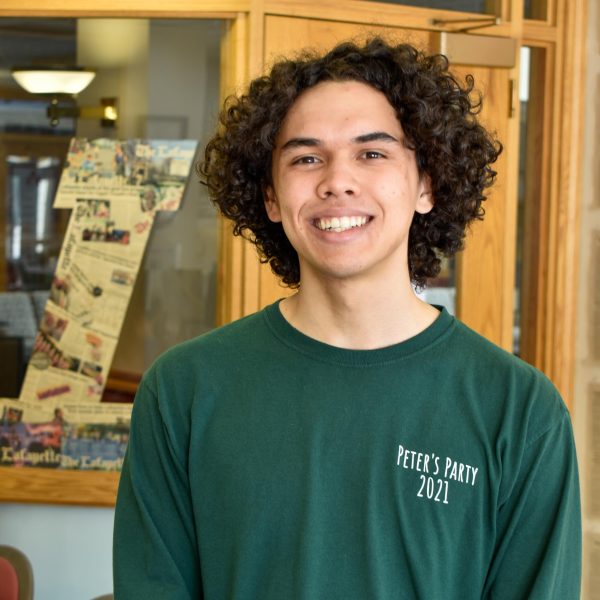Over the summer, 20 professors were recognized for their dedication to the college by getting promoted, some receiving tenure and others becoming full professors.
Promotions from assistant professor to associate professor recognized those who have contributed in meaningful ways to the Lafayette community through service work, teaching and outside research. These eight professors received their tenure, meaning that they have practically guaranteed job security.
Associate professor of international affairs Caleb Gallemore is one of these recent promotions. Gallemore explained that the tenure process can be nerve-wracking.
“There are very few other jobs where it’s either we are going to promote you now or fire you immediately,” Gallemore said.
Gallemore added that now that he has made tenure, there is less uncertainty about his job.
“The level of security is really important to me,” Gallemore said. “You know, I didn’t come from fabulous wealth or any of that sort of stuff, and I am very conscious about precarity and things like that.”
He said that academic experimentation is one of the biggest benefits of receiving tenure.
“The big thing that changes is that with some of the protections of tenure … It kind of gives you a little more freedom to try new things and take risks,” Gallemore said. “I’ve got a little bit more freedom to sort of experiment.”
Associate professor of economics Joaquín Gómez-Miñambres is another recently tenured faculty member. He was an assistant professor at Bucknell University for four years prior to coming to Lafayette, so he was eligible to apply for tenure two years before his colleagues. Gómez-Miñambres said that the tenure process is complicated and compared it to other big life commitments.
“I think it is a good way for both the candidate and the institution to discover if they are a good match for each other,” Gómez-Miñambres said. “In this way, the tenure process is a bit like dating, and getting tenure is a bit like getting married.”
Gómez-Miñambres agreed with Gallamore that tenure allows professors more freedom in their teaching.
“As an untenured faculty, I was sometimes reluctant to alter the way I did things for fear of getting poor teaching evaluations that would look bad in my tenure file. Therefore, I hope getting tenure will allow me to be bolder and innovative in my approach to teaching and scholarship,” he said.
Among the other recently tenured professors are professor of mechanical engineering Alexander Brown, professor of English Megan Fernandes, professor of Spanish Amauri Gutiérrez-Coto, professor of computer science Jia Tao, professor of mechanical engineering Brent Utter and professor of chemical and biomolecular engineering Ryan Van Horn.
Promotions from associate professors to full professors recognized 12 already tenured faculty for their exemplary work; this title is the highest ranking position within academia.
Professor of theater Mary Jo Lodge wrote in an email that the newest responsibility she gained with her promotion is mentorship.
“I am glad that as a Full Professor I can also … be more of an advocate for Junior Professors,” Lodge wrote.
Michael O’Neill, also a professor of theater, has worked at the college since 1998 when the major was still a part of the English department.
“Theater was an extracurricular activity, and I had a little tiny office over in the Williams Center [on] the Hill. And look, now we have our own facility. We have a healthy major. We have a department,” O’Neill said. “I’m proud of my work here. I’ve had the chance to build a program.”
One of his top priorities in his time at Lafayette has become the integration of sustainability and theater. “If we don’t have a planet, we’re not going to have any theater,” he said.
Rebekah Pite, a professor of history, said that working in the department for 15 years has shown her how useful a history degree can be to students.
“[The students] get really good at doing research, asking good questions, talking, writing, effectively developing an argument,” Pite said. “And I feel like I would put that up against any program in the country.”
Professor of philosophy Alessandro Giovannelli agreed with Pite and said that the students’ enthusiasm in the classroom is the best part of working at the college.
“They often discover that the philosophy of art can be a lot of fun … Having that type of student is very energizing for me,” Giovanelli said.
Giovanelli said that he is hoping to create a humanities center during his time at Lafayette.
“We’ve been working hard and … thinking in various sort of novel ways towards establishing a humanities center. So as a full professor, if I could see the humanities being properly highlighted as they ought to be … it would be wonderful for the college.”
Africana studies professor Wendy Wilson-Fall, who also hopes to create a center for her department, was excited about her promotion. However, in her decade at Lafayette, she has been frustrated by the administration’s lack of contribution to the department.
“I love the students at Lafayette … Most of them are hardworking, and they have also learned how to work hard, which is not the same thing … I’m impressed, really, with the level of the faculty here,” Wilson-Fall said. “But I have been discouraged by the slowness and the inconsistency of the administration’s commitment to [the Africana Studies] program.”
Art professor Karina Skvirsky wrote in an email that her promotion gave her a newfound sense of obligation.
“In some ways there is more responsibility. You become a leader at Lafayette and you take on the process of mentoring colleagues coming up through the process,” Skvirsky wrote. “It’s a time to give back to the community.”
Also promoted to full professor were: professor of chemical and biomolecular engineering Lauren Anderson, professor of art history Ingrid Furniss, professor of chemistry Justin Hines, professor of sociology Caroline Lee, professor of film and media studies Nandini Sikand and professor of anthropology Neha Vora.

























































































































